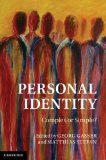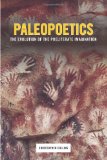January 23, 2013

Missing Out: In Praise of the Unlived Life by Adam Phillips (Farrar, Straus, and Giroux, 2013)
(kindle ed.), (amazon.co.uk)
Book description from the publisher:
A transformative book about the lives we wish we had and what they can teach us about who we are
All of us lead two parallel lives: the one we are actively living, and the one we feel we should have had or might yet have. As hard as we try to exist in the moment, the unlived life is an inescapable presence, a shadow at our heels. And this itself can become the story of our lives: an elegy to unmet needs and sacrificed desires. We become haunted by the myth of our own potential, of what we have in ourselves to be or to do. And this can make of our lives a perpetual falling-short.
But what happens if we remove the idea of failure from the equation? With his flair for graceful paradox, the acclaimed psychoanalyst Adam Phillips suggests that if we accept frustration as a way of outlining what we really want, satisfaction suddenly becomes possible. To crave a life without frustration is to crave a life without the potential to identify and accomplish our desires.
In this elegant, compassionate, and absorbing book, Phillips draws deeply on his own clinical experience as well as on the works of Shakespeare and Freud, of D. W. Winnicott and William James, to suggest that frustration, not getting it, and and getting away with it are all chapters in our unlived lives—and may be essential to the one fully lived.
Google Books preview:
Comments (0)
- new books,psychology
January 20, 2013

Personal Identity: Complex or Simple? ed. by Georg Gasser and Matthias Stefan (Cambridge University Press, 2012)
(kindle ed.), (amazon.co.uk)
Book description from the publisher:
We take it for granted that a person persists over time: when we make plans, we assume that we will carry them out; when we punish someone for a crime, we assume that she is the same person as the one who committed it. Metaphysical questions underlying these assumptions point towards an area of deep existential and philosophical interest. In this volume, leading metaphysicians discuss key questions about personal identity, including ‘What are we?’, ‘How do we persist?’, and ‘Which conditions guarantee our identity over time?’ They discuss whether personal identity is ‘complex’, whereby it is analyzable in terms of simpler relations such as physical or psychological features, or whether it is ‘simple’, namely something that cannot be analyzed in terms of more fundamental relations. Their essays offer an innovative discussion of this topic and will be of interest to a wide readership in metaphysics.
Comments (0)
- new books,self
January 16, 2013

Paleopoetics: The Evolution of the Preliterate Imagination by Christopher Collins (Columbia University Press, 2013)
(kindle ed.), (amazon.co.uk)
Book description from the publisher:
Christopher Collins introduces an exciting new field of research that traverses evolutionary biology, anthropology, archaeology, cognitive psychology, linguistics, neuroscience, and literary study. Paleopoetics maps the selective processes that shaped the human genus millions of years ago and prepared the human brain to play, imagine, empathize, and engage in fictive thought as mediated by language. A manifestation of the “cognitive turn” in the humanities, this study calls for a broader, more integrated interpretation of the reading experience, one that restores our connection to the ancient methods of thought production still resonating within us.
Speaking with authority on the scientific aspects of cognitive poetics, Collins proposes reading literature using cognitive skills that predate language and writing. These include the brain’s capacity to perceive the visible world, store its images, and retrieve them later to form simulated mental events. Long before humans could share stories through speech, they perceived, remembered, and imagined their own inner narratives. Drawing on a wide range of evidence, Collins builds an evolutionary bridge between humans’ development of sensorimotor skills and their achievement of linguistic cognition, bringing current scientific perspective to such issues as the structure of narrative, the distinction between metaphor and metonymy, the relation of rhetoric to poetics, the relevance of performance theory to reading, the difference between orality and writing, and the nature of play and imagination.
Comments (0)
- Uncategorized
January 10, 2013

Shortlisted for the Man Booker Prize 2012:
Umbrella by Will Self (Grove Press, 2013)
(kindle ed.), (amazon.co.uk)
Book description from the publisher:
“A brother is as easily forgotten as an umbrella.”—James Joyce, Ulysses
Radical and uncompromising, Umbrella is a tour de force from one of England’s most acclaimed contemporary writers, and Self’s most ambitious novel to date. Moving between Edwardian London and a suburban mental hospital in 1971, Umbrella exposes the twentieth century’s technological searchlight as refracted through the dark glass of a long term mental institution. While making his first tours of the hospital at which he has just begun working, maverick psychiatrist Zachary Busner notices that many of the patients exhibit a strange physical tic: rapid, precise movements that they repeat over and over. One of these patients is Audrey Dearth, an elderly woman born in the slums of West London in 1890. Audrey’s memories of a bygone Edwardian London, her lovers, involvement with early feminist and socialist movements, and, in particular, her time working in an umbrella shop, alternate with Busner’s attempts to treat her condition and bring light to her clouded world. Busner’s investigations into Audrey’s illness lead to discoveries about her family that are shocking and tragic.
Google Books preview:
See also: Author’s website
Comments (0)
- fiction,new books






